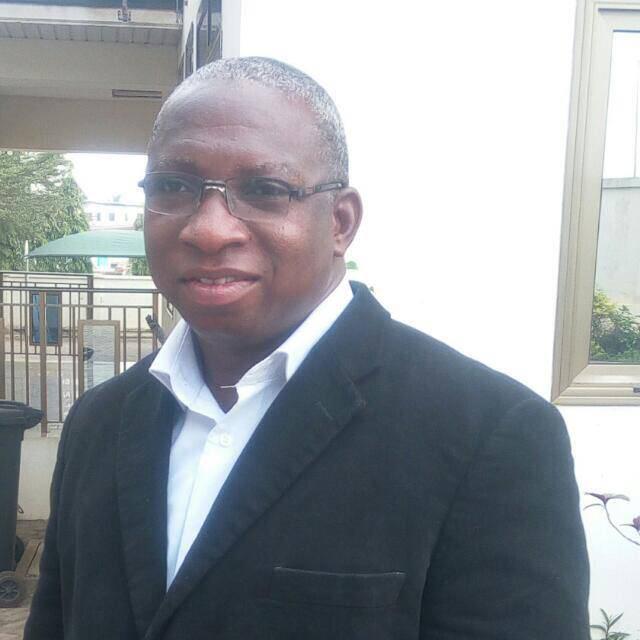A Ghanaian Divine Word Missionary (SVD) Priest, Rev. Fr. Nicholas Nibetol Aazine, has advised Catholics especially catechumens not to learn Catechism because they only want to receive the Sacraments and that ends it.
“Do not learn it because you want to refute a particular faith doctrine of another church. First and foremost, learn it because you want to enhance your own faith and understanding of the Christian family you believe and live in,” he said in an opinion piece made available to Newswatchgh.com on April 11, 2023.
The five-page opinion piece titled: Decline in Catholic Population in Ghana- Catechesis Lessons a Factor sought to bring to bear some fundamental root causes of the recent waning in the Catholic population in Ghana.
Fr. Aazine, who is the Assistant Parish Priest of St. Dominic Catholic Church, Adweso in the Koforidua Diocese and SVD Coordinator JPIC in Africa advised Catholics to learn catechism because “you want to be in a position to pass this on as a gift to your children.”
“If this is taken seriously, quality will precede quantity alright but quality will definitely not walk alone,” he added.
According to the SVD Priest, one of the primary causes of the decline of Catholic Population is the seriousness attached to Catechesis classes or instructions that are held in parishes, schools and families.
“The Catechetical system operating currently in nearly all the parishes, if I am not mistaken is merely informational as opposed to being transformational,” he argued.
“Quiz some of the children who received the sacrament of baptism, first Holy Communion or Confirmation either in 2021 or 2022 and see the heartbreaking explanation and answers you will get. For instance, why do Catholics make the sign of the cross? The answer you would receive, will put you on another cross beside Jesus. Certainly, these are not sweepy statements, majority of our children are in this predicament,” he stated.
Fr. Aazine noted that another primary reason for the decline in the Catholic population is that most adult Catholics are handicap when it comes to the Catholic teachings and doctrines.
“Once the foundation is weak or not properly understood, it affects the future as well. Many adult Catholics begin to research about the Catholic faith only when they are either confronted by other churches or they have an exam to write, otherwise they are just content with the little they know,” he said.
He noted that the formal period of catechesis for most places begins with children at the age of 7, which is considered as the age of reasoning, where the child is presumed to have the ability to discern between what is right and what is wrong.
He was of the opinion that “this does not spell out maturity in most cases or in most children for that matter. When it comes to faith issues, it is far more than just knowing what is wrong and what is right.”
This, according to him, raises concern with the age group or bracket, when children start instructions for Catechumens or the Rite of Christian Initiation for Adult (RCIA).
“Those baptized as infants, at the age of 7 could in my opinion start pre-Catechesis classes, where specific lessons are designed for them. At least, this period could specifically be used to prompt their minds on what to expect in the next stage. This should take at least a period of 3 years by which time the child is still in primary school,” he suggested.
“The second stage should start at the age of ten, where the child would be in Junior High School and this should cover the period of 2 years. This period is slated for 2 years because it would be appropriate to avoid the year they are preparing for their major examination at school,” he recommended, adding, “The focus at this stage would be to start giving relevant meaning and scriptural references to some of the things they learnt in the pre-Catechetical period.”
“The third stage is specifically for the sacrament of Confirmation. This begins when they are in the Senior High School. This should also be slated for 2 years. This should not also interrupt their final year when they are going to preparing for their final examination. This stage is a little dice and a lot of encouragement and commitment from parents, pastors, Catholic teachers and even school authorities would have to play a key role,” he proposed.
“One credible time to do any Post Catechetical programme or teaching would be on Sunday during Mass. If a particular Sunday is earmarked by each parish (bigger parish that have once a month joint Mass, not during a specific feast day) they could cease the opportunity to treat a specific topic in place of the homily and invite parishioners to be actively involved taking comments, contributions and questions,” he suggested.
This, according to him, would go a long way to bridge the gaps created, adding, “If these are done properly, they will go a long way to address most of the secondary root causes that are also contributing to the decline in the Catholic population in Ghana.”
The full article will published by Newswatchgh.com



